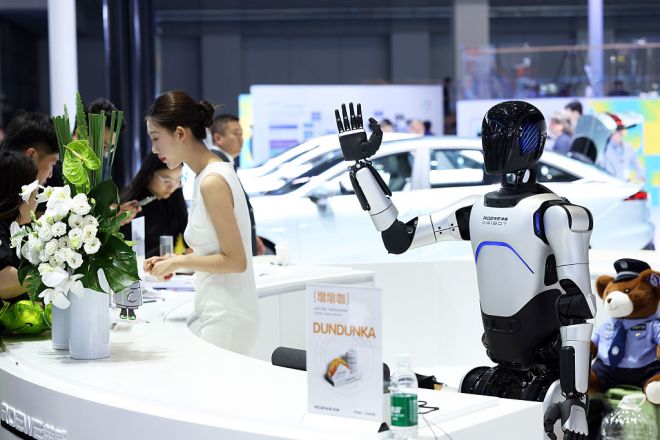Gen Z Grads Feel AI Has Made Their College Degrees Obsolete

Gen Z grads are frustrated by today’s competitive job market and many are blaming artificial intelligence (AI) for the difficult hiring climate.
A recent survey released by Indeed on April 21 revealed growing concerns among Gen Z grads about the impact of AI on their careers. With AI-powered tools like ChatGPT and Claude becoming increasingly common in workplaces for tasks such as research, writing, and programming, many young professionals are beginning to question the long-term value of their education.
In fact, 30% of all respondents said they believe AI has made their degrees less relevant, a figure that rises sharply to 45% among Gen Z participants.
RELATED CONTENT: Hold Up! Tyler Perry Ceased $800M Expansion Project For Atlanta Studio To Explore Impact Of AI Technology
Their concerns reflect broader trends in the workplace, as AI continues to be integrated across various industries. According to IBM, businesses are leveraging AI to streamline operations and gain deeper data-driven insights. Key areas where AI is actively being deployed include IT operations, customer service, supply chain management, human resources, and finance.
Adding to the frustration, the value of a college degree seems to be slipping in today’s job market. A 2024 report from Indeed found that, as of January 2024, more than half (52%) of U.S. job listings didn’t mention any formal education requirement, a major increase from 48% in 2019. Over the past five years, the share of postings requiring at least a bachelor’s degree has dropped from 20.4% to 17.8%, creating more opportunities for the 64% of American adults without a four-year degree.
This trend spans nearly every industry. Indeed found that 87% of occupational groups have seen a decline in degree requirements since 2019.
Gen Z has the right to be big mad!
Gen Z has every reason to be frustrated—especially when the cost of a college education keeps climbing. According to the College Board, for the 2024-2025 academic year, in-state students at public four-year universities paid an average of $11,610 in tuition alone. Out-of-state students were shelling out nearly three times that, close to $30,780. Add in room and board, which averages $13,310 annually, and the total cost of a degree starts to look daunting.
It’s no wonder graduates are entering the workforce deep in debt. The Education Data Initiative noted that the average federal student loan balance for university grads last year was $38,375, and when private loans were factored in, that number climbed to around $41,618.
While the job market appears bleak, Francisco Marmolejo, Higher Education President and Education Advisor at Qatar Foundation told Indeed that Gen Z shouldn’t be too alarmed by the rise of AI. He feels there’s an opportunity for recent grads and those still in college to shift their focus on developing essential “soft skills” that will be valuable and needed to work in tandem with the growing technology.
“A big advantage of generative AI is that educational institutions will have more time to prepare students on the humanistic side. More effective efforts can and should be dedicated to making sure that all students become competent in much more valued skills for the future of work, such as analytical skills, teamwork, and critical thinking,” he explained.
Are you a recent Gen Z grad? How are you feeling about today’s job market? Tell us in the comments section.
RELATED CONTENT: Unlocking Creative Storytelling With AI: iOne Digital Takes The CultureCon Stage






